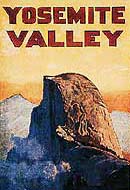January 10, 1985
The Economic Way
Of Thinking:
The More Houses Less Forest Dynamic
By Howard E. Hobbs, J.D., Ph.D.
Every action has a cost. That is,
every action involves some opportunity cost, whether or not this
cost is explicitly stated or even understood by those incurring
it. Since our world is one of limited resources, it is also a
world of tradeoffs.
Many citizens are attempting to have
forest areas preserved as pure wilderness, arguing that we should
preserve as much of our natural, as opposed to manmade ecology
as possible. Preserving wilderness areas involves costs and benefits.
The costs include less forest area for other purposes, such as
camping grounds and logging.
Who bears these costs? People who like
to camp, but not backpack, in the first case, and people who buy
houses and other wood products, in the second. Although the reader
can easily understand the first case, the second may not be so
obvious.
Look at it this way. When fewer forest
areas are used for logging, then the supply of lumber is smaller
than it would be otherwise. With any given demand schedule, the
price of lumber is therefore higher than otherwise. So houses
are more expensive.
Wilderness area preservation offers benefits
to all those who like backpacking in the preserved area, and all
those who can enjoy fishing and hunting there. Benefits are also
bestowed upon those who do not themselves backpack, hunt, or fish,
but would pay something to keep wilderness for their children.
To determine what effect the saving of
a natural ecology area has on the distribution of income broadly
defined, we have therefore tried to discover, as always, who bears
the costs and who obtains the benefits. This is usually an empirical
question which can be answered only by examining relevant data.
From limited studies that have been done,
we can make a tentative conclusion about wilderness preservation.
It has been found that backpackers are, in general, well educated
and earn considerably more than the average. The gains from that
activity go to middle and upper income groups.
As for who bears the costs, we know that
campers - those with tents, traders, ard campers, are, on average
less well educated than backpackers and. earn considerably less.
So, we are trading off recreation facilities used by lower income
people in favor of those used by higher income people.
As for the increased price of housing
due to less lumber, we know that the poor will suffer more than
the rich, because of wood product substitutes, for that matter.
The supply schedule is farther to the left for non-wood houses.
Since the price of wood houses is higher than
otherwise, more people substitute non-wood houses and their price
is bid up - their demand schedule shifts outward to the right.
When fewer forest areas are used for logging, then the supply
of lumber is smaller than it would be otherwise.
With any given demand schedule, the price
of lumber is therefore higher than otherwise. So houses are more
expensive. Wilderness area preservation offers benefits to all
those who like backpacking in the preserved area, and all those
who can enjoy fishing and hunting there. Benefits are also bestowed
upon those who do not themselves backpack, hunt, or fish, but
would pay something to keep wilderness for their children.
![]()
![]()
![]()






